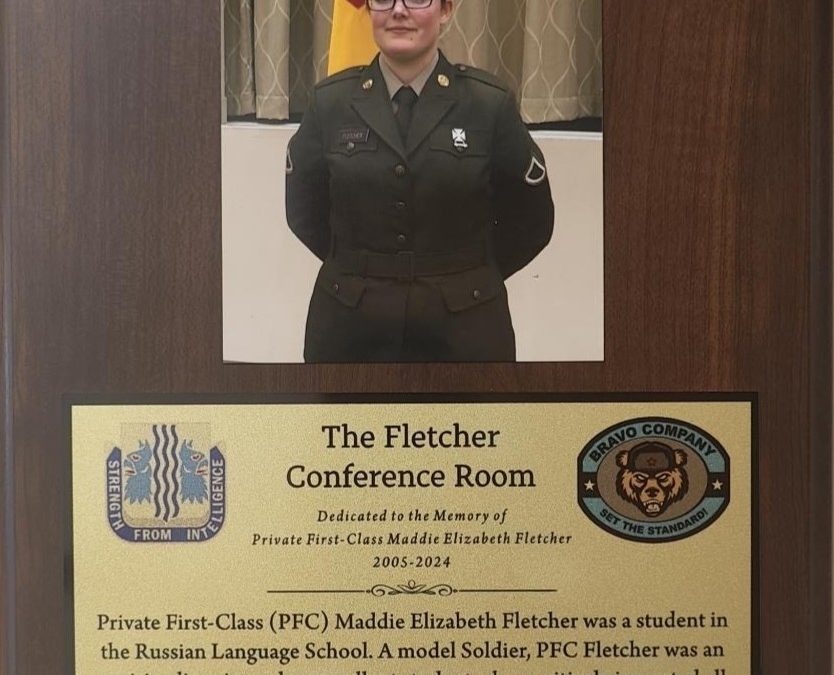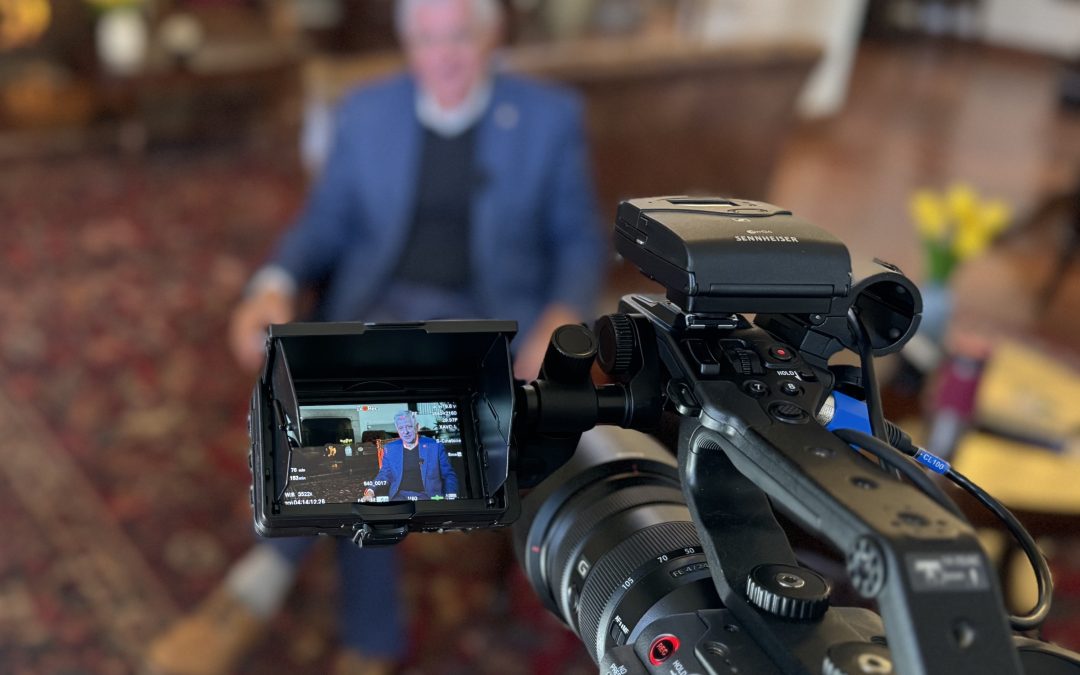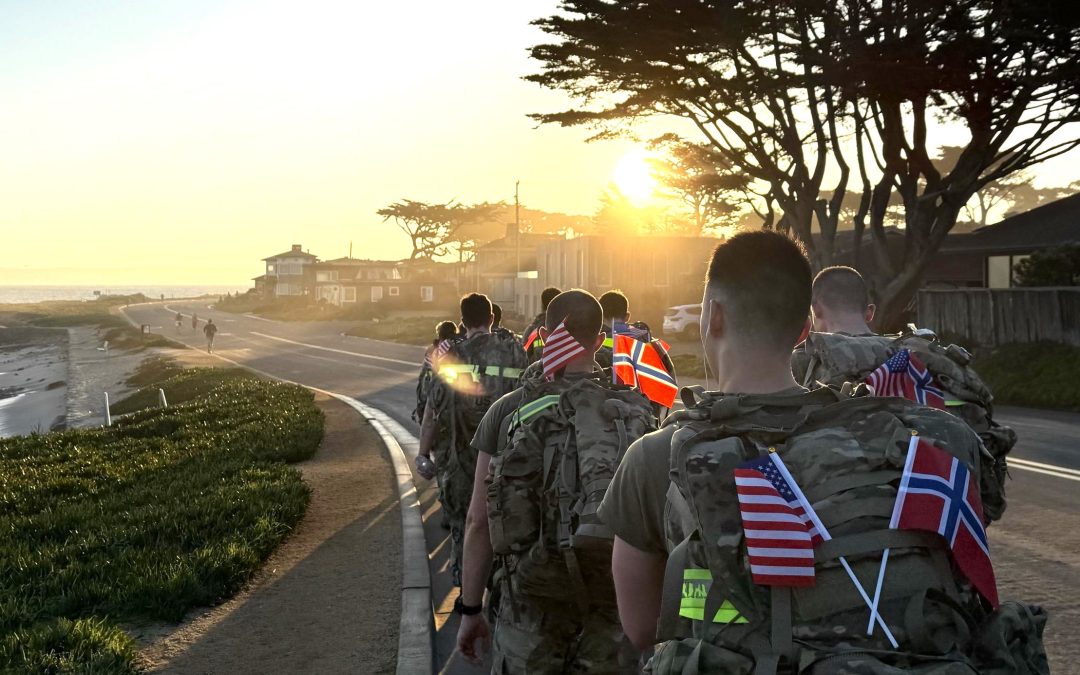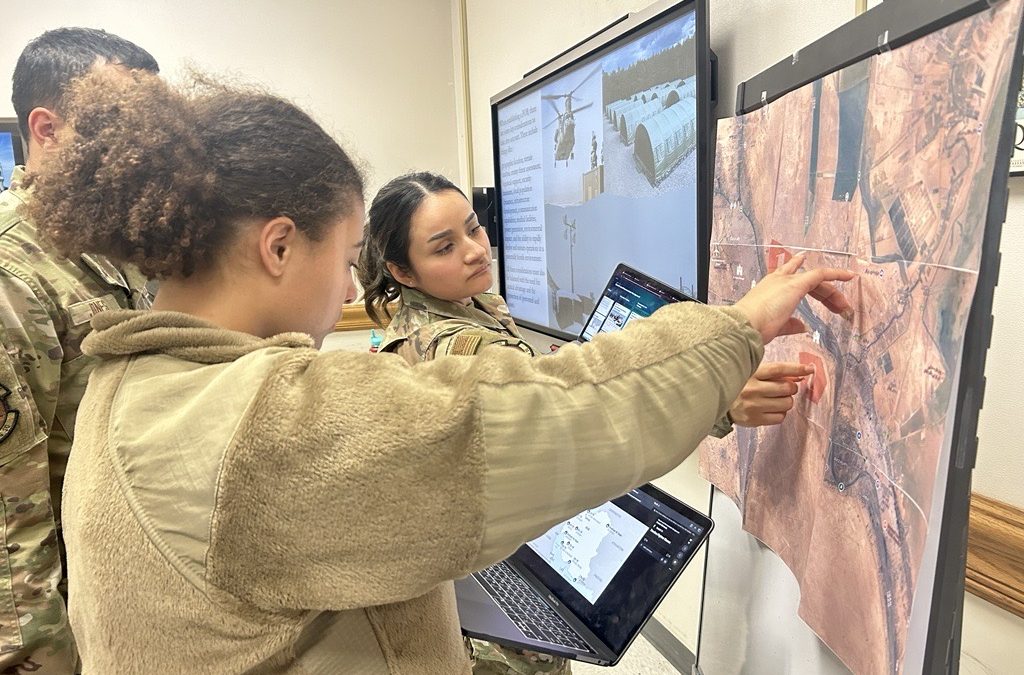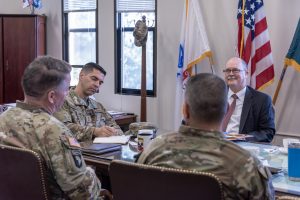
U.S. Air Force Maj. Gen. Matteo Martemucci meets with Col. James A. Keivit to discuss DLIFLC and our security agency partnerships.
U.S. Air Force Maj. Gen. Matteo Martemucci, the Deputy Chief of the Central Security Service, National Security Agency, visited with the Defense Language Institute Foreign Language Center commandant and heads of various language education programs to discuss language learning and security agency partnerships Feb. 27.
Air Force Col. Mark Jones, commander of the 517th Training Group and DLIFLC assistance commandant, then gave Martemucci a tour of the facilities as part of a fact-finding mission meant to delve into the educational processes and explore ways to increase the cooperation between DLIFLC and NSA.
“[DLIFLC] is a force multiplier and it is a mission enabler,” Martemucci asserted. “It is an incredible partnership between instructors, students and, ultimately, the customers…which is the Department of Defense.”
In his daily duties, Martemucci assists U.S. Air Force Gen. Timothy D. Haugh, Chief of the Central Security Service, who also acts as the Commander of U.S. Cyber Command and director of the NSA, with operational control of signals intelligence missions conducted by all military services and the Coast Guard. Martemucci is responsible for more than 16,600 personnel, ensuring they receive the best education to protect the security of the nation.
“This is an opportunity for us to understand and look for the kind of partnerships that exist between the Agency and DLI,” he said. “And just as important…to see the instructors, the students and all the partnering that’s going on here.”
After taking some time to tour the classrooms, Martemucci was impressed by the collaboration between students and teachers as he witnessed their linguistic interactions in person. Because of the strategic importance a linguist makes, it is vital the entire training pipeline is streamlined and synchronized, from recruitment to their first assignment.
“It’s humbling, seeing the educators in the classroom with the students,” he admitted.
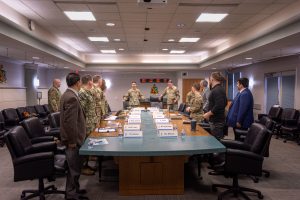
Maj. Gen. Matteo Martemucci attends a command briefing with the DLIFLC commandant and several heads of foreign language education.
Martemucci is hopeful to take away some “homework:” tasks and projects to better understand and strengthen the partnerships between customer expectations and DLIFLC’s output when he returns to Cyber Command, located in Ft. Meade, Maryland.
“[We are now in] Great Power Competition 2.0, as I call it. The Great Power Competition 1.0…was the Cold War,” explained Martemucci. “What I would offer, what won the Cold War, was not a diplomatic military but information.”
As we continue in Great Power Competition 2.0, Martemucci says, there’s a clash between Western values like free-market capitalism and democracy, which is led by the United States, and the alternative world vision presented by China. He is convinced information holds the key to understanding and navigating this global rivalry.
“That system our Chinese competitors are offering, in terms of the reordering of the world order, seems to me that information is, yet again, the critical component to frame that…competition,” cautioned Martemucci.
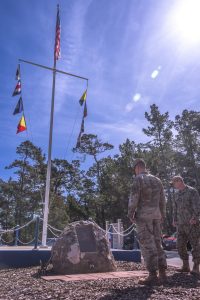
Maj. Gen. Martemucci and Cmdr. Mathew Dalton take a moment to honor Senior Chief Petty Officer Shannon Kent who was killed in combat in 2019.
In a sobering moment, Martemucci and his team took a detour with Navy Cmdr. Mathew Dalton of the Information Warfare Training Command to visit the Senior Chief Petty Officer Shannon Kent memorial for a moment of reflection. A Naval Cryptologic Technician, Kent was killed in action while deployed in support of Operation Inherent Resolve, Jan. 16, 2019, in Syria.
“[Kent] is representative of the expeditionary nature of this incredible cryptologic enterprise,” Martemucci said. “We thought it would be a really useful and powerful point for the whole team to remind ourselves why we do what we do. It is important to contextualize and recognize what linguists do every day.”

